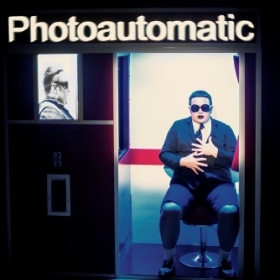The Worst of Scottee (Roundhouse)

© Darrell Berry
Scottee has a few things to confess. The self-labelled “light artist” (his work playfully marries live art and light entertainment) is eschewing the artistic and media trend for compiling one’s “best bits” and instead laying out all his worst features for audiences to see. Slowly peeling back the make-up, his debut solo show transforms the supposed ugliness of its subject matter into a piece of art that is generous, moving and oddly beautiful.
The concept and structure are appealingly straightforward, containing depths that belie the brash surface gloss usually associated with Scottee’s work. With help from a psychotherapist, Scottee has excavated a series of his worst transgressions – telling people that an ex-girlfriend had killed herself, or inventing a fake Aids diagnosis – and made them into a startlingly confessional show.
Each episode is related to the audience through the medium of the photobooth in which Scottee sits throughout, interspersed with the filmed memories of some of those who have known him over the years and punctuated with increasingly stripped back songs. As the show progresses, the persona gradually erodes; costume and fake eyelashes are removed bit by bit, leaving the exposed and vulnerable individual beneath.
The show’s deceptively simple photobooth design is inspired. It is at once a confession booth and a machine for producing manufactured images of the self. The presence of the camera also allows Scottee to avoid the gaze of the audience for much of the show, instead facing us in profile while his front-on confessions are screened from the wall of the booth. It as though to directly deliver these painful reminiscences would be an exposure too far. Different levels of mediation and self-presentation, meanwhile, are delicately invoked by this device, inviting audiences to think of the overwrought confessional aspect of reality television or the now ubiquitous selfie.
Also implicit within the show’s confessions is an interrogation of theatricality and authenticity. For all its brave honesty – and the piece is extraordinarily exposing – this is always still, at some level, a performance. Scottee shrewdly acknowledges this; the opening number, a gloriously overdone rendition of “Cry Me a River” that culminates in inky tears streaming down his face, is an overt demonstration of theatricality and faked emotion, while his early delivery delights in comedic details and little asides to the audience. There are constant nods to authenticity, but also to the necessarily constructed nature of the show. Even the devastating finale, which sees Scottee standing before us in smeared make-up, voice cracking with emotion, leaves the lingering question mark of how far we can ever truly reveal ourselves in the space of the theatre.
The Worst of Scottee runs at the Roundhouse until 15 February.
Read Scottee's guest blog for WhatsOnStage here.










